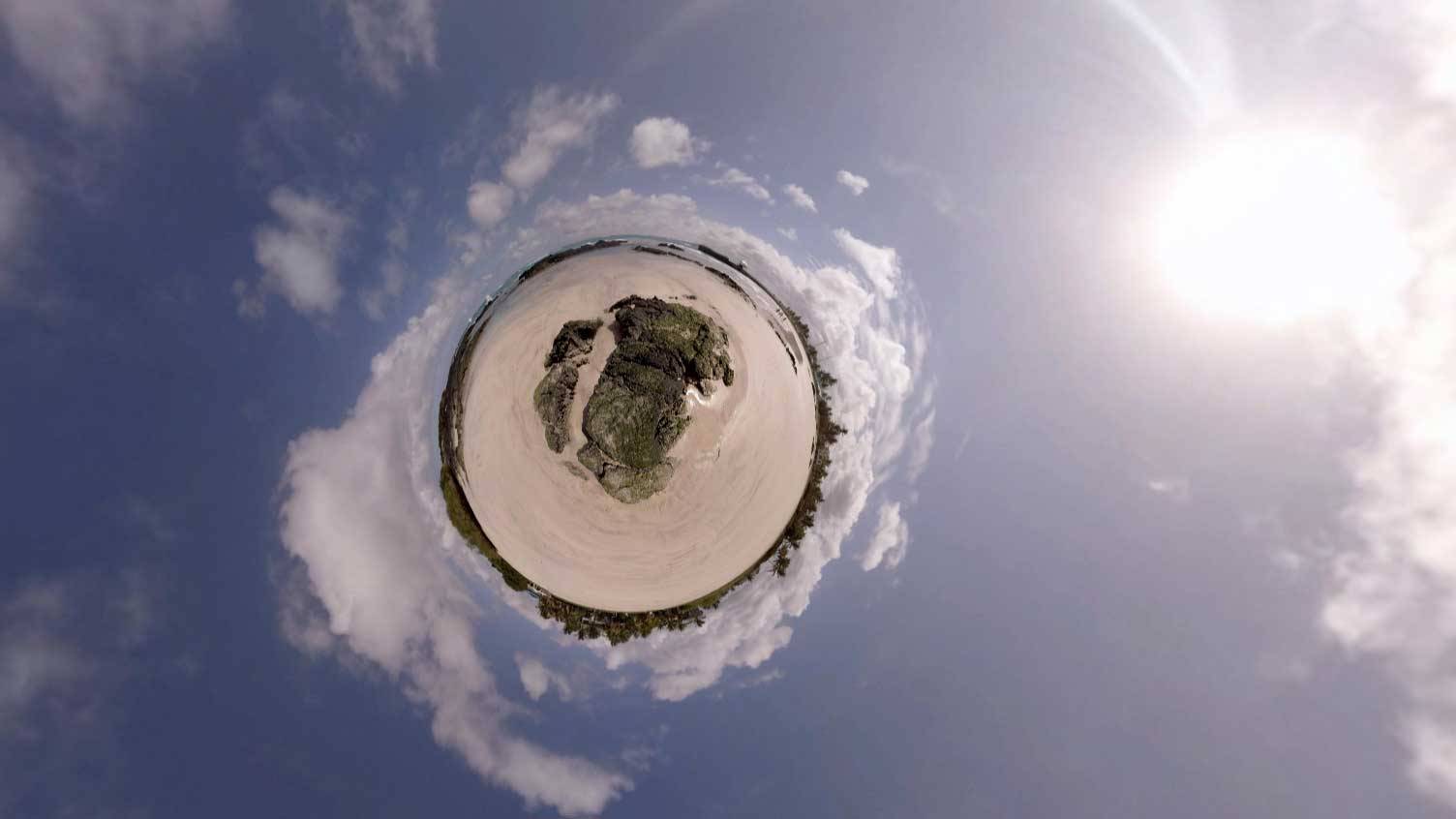Workforce shortages have made headlines during the COVID-19 pandemic. The shortage of STEM (science, technology, engineering, and math) educators across the United States, however, is nothing new. The well-documented need for high-quality STEM teachers and training resources is most urgent in elementary schools and rural communities like those around Hamilton, N.Y.
A cross-disciplinary team of Colgate University faculty and staff members is tackling this status quo through a new approach to STEM teacher training, with a grant from the National Science Foundation (NSF).
The germ of the idea formed several years ago and thousands of miles away, while Professor of Earth and Environmental Geosciences and Peace and Conflict Studies Karen Harpp was working on a documentary in the Galápagos Islands.
“The producers wanted the science to be cut-and-dried, with definitive answers to every question. That’s not how science works,” Harpp said. “The sciences are intermingled; I can’t do what I do in geology without knowledge gained through biology, and vice versa. And there’s always room to discover something new.”
Back at Colgate, she brainstormed with Joe Eakin, technical director and designer in the Ho Tung Visualization Laboratory, about how to take the richness of scientific exploration in the Galápagos out of textbooks and documentaries and make it real to students of all ages. Using a grant from McGill University’s Labs Without Borders program, they took a small group of Colgate undergraduates to the islands in 2017 to take photos and videos. Each summer since then, they’ve worked with a new group of undergrads — including writers, graphic designers, programmers, and science majors — to create a highly visual educational website that appeals to kids inside and outside their classrooms.
Harpp and Eakin noticed an interesting trend as those undergrads entered the workforce: many of them became science educators. “We decided to pivot our primary goal to benefit future STEM teachers,” Harpp said.
They pulled in former biology teacher and current director of Colgate’s Teacher Preparation Program Meg Gardner. Together, they developed a unique approach for training STEM teachers through problem-solving, critical thinking, and discovery — the very skills those teachers-in-training will one day impart to their own students.
“Many teachers-in-training for grades 1–6 don’t identify as science teachers. They have to teach everything, and they’re aware that they don’t have deep scientific knowledge,” Gardner said. “We designed the Virtual Galápagos program to build their content knowledge, dissolve their hesitations, and grow their confidence.”
This past August, the team was awarded NSF funding to pilot its approach over the next two years. Each summer, the pilot will accept 10 undergraduate teachers-in-training — hailing from Colgate as well as Utica University, Mohawk Valley Community College, and Onondaga Community College — to participate in a collaborative, immersive experience. One local, in-service educator and one graduate student in education will be selected to mentor the undergrads while also learning alongside them.
“We envision a space fertile for understanding science and embracing different identities and perspectives that are part of this area of New York State, including urban and rural,” Gardner said.
During the course of 10 weeks, each cohort will create teacher resources and a new component of the interactive, interdisciplinary Virtual Galápagos website. The website is designed to guide children in exploring scientific “mysteries” by gathering data online, making observations based on 360-degree videos from the islands, engaging in hands-on exercises, and watching interviews with scientists.
“The technical aspect of creating educational materials is part of becoming comfortable with STEM,” Eakin said. He’ll lead workshops each summer to familiarize teachers-in-training with an array of emerging technologies. “I don’t expect them to become experts in animation or virtual reality, but I hope to give them skillsets they’ll use in their classrooms.”
The team envisions how this pilot will create lasting benefits: Existing teachers will have new resources. Twenty new teachers in the Hamilton area will be prepared to enter the workforce. Teacher-training programs across the country — especially in rural communities — will be able to replicate the Virtual Galápagos model to prepare high-quality STEM teachers in their areas. And by injecting more confident, effective STEM teachers into schools, more students may be inspired to engage with STEM at a pivotal age and eventually pursue STEM careers.
Based on the pilot, the team also hopes to develop two new courses for the Colgate Teacher Preparation Program: pedagogical design in STEM and technology use in the classroom.
“This project synergizes so many beautiful things about liberal arts teaching and learning,” Gardner said. “It dovetails with Colgate’s core goals. We’re helping ensure that Colgate undergraduates develop global citizenship, and we’re setting them up to be leaders in supporting the development of children in their communities.”
“And ultimately,” Harpp said, “they’re helping kids learn how to do science. What’s more exciting than that?”
— Meghan McDonald
